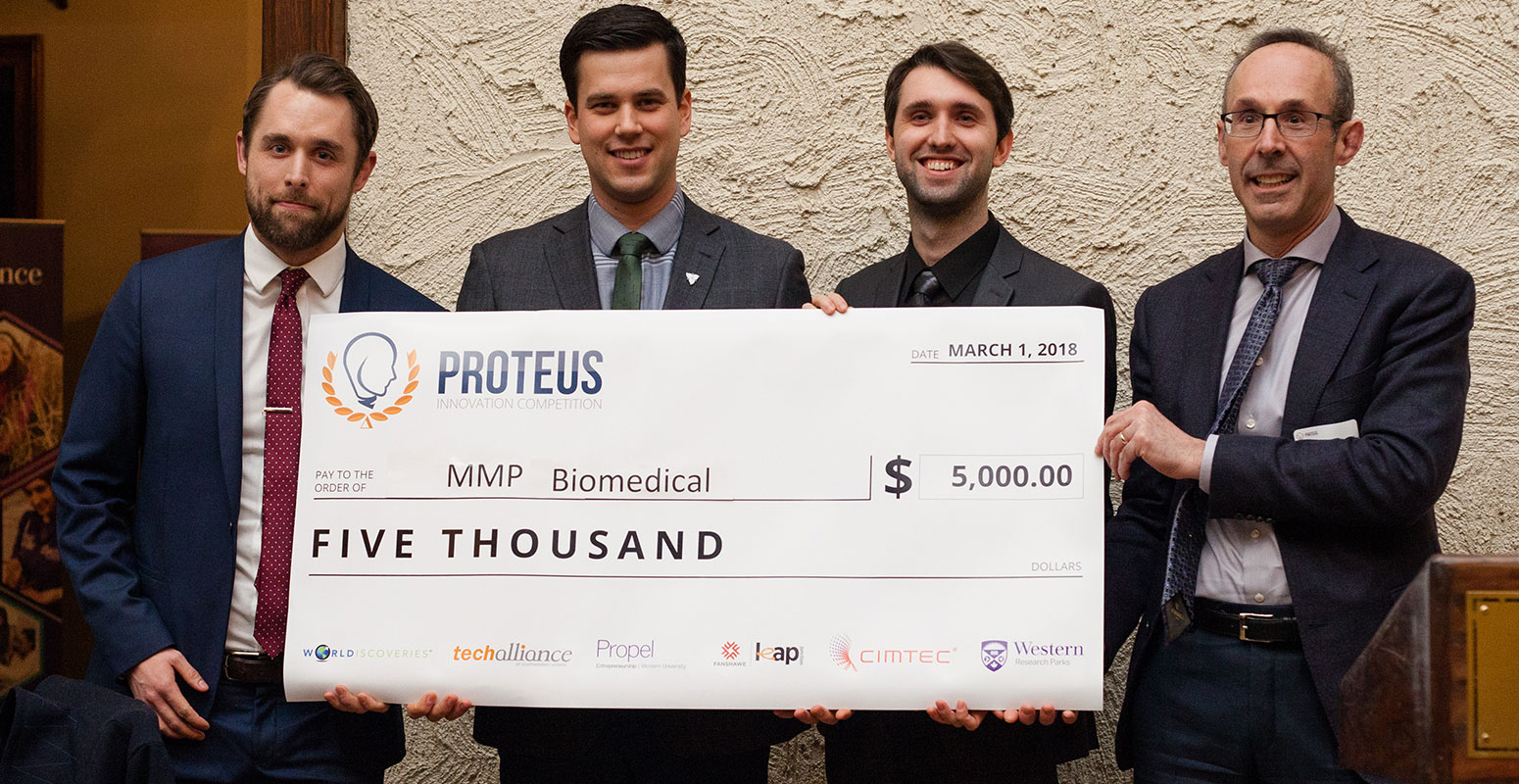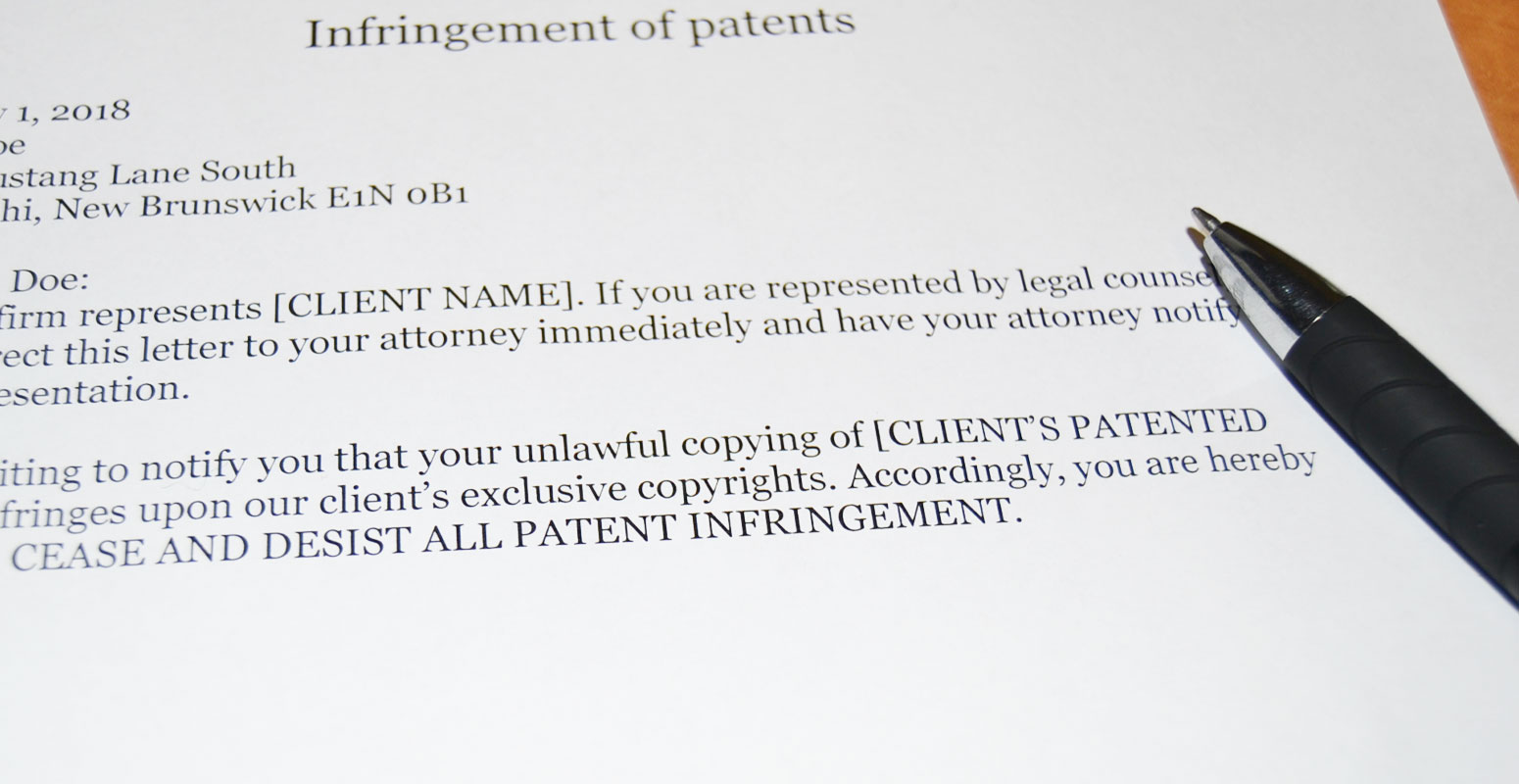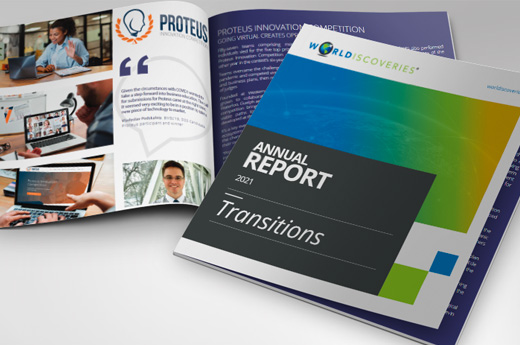By Paul Mayne
Make it another innovation-and-commercialization win for PhD candidate Patrick McCunn and Alex Moszcynski, PhD’17.
After taking one of the top spots in last year’s Proteus Innovation Competition with their plans to commercialize a cloud-based data collection app, the pair returned this year and teamed up with PhD candidate Adam Paish to win yet again – this time, tackling the marketability of a Western-developed tool to improve precision and efficiency in joint replacement.
Read more










